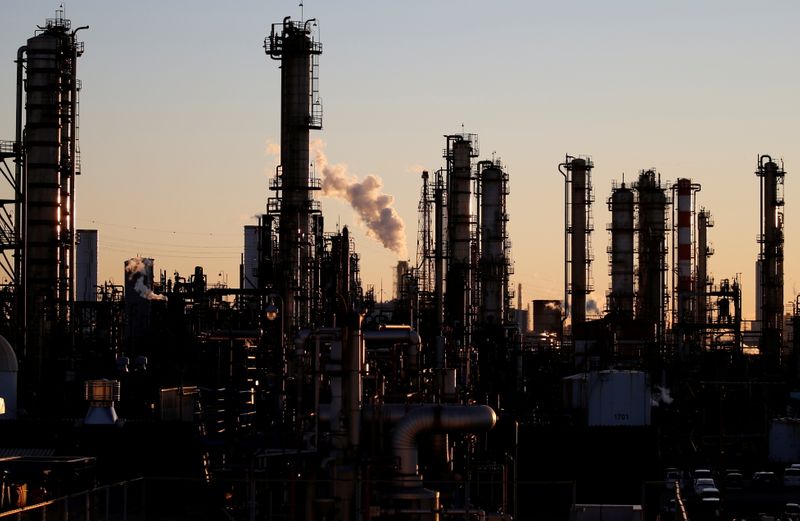By Daniel Leussink
TOKYO (Reuters) - Japan's factory output fell in February as an earthquake and semiconductor shortage led to declines in the production of cars and electrical machinery, adding to worries for an economy struggling to recover from the coronavirus pandemic.
The world's third-largest economy is expected to contract in the current quarter due to coronavirus-related curbs that were imposed from early January for Tokyo and other prefectures.
Official data released on Wednesday showed factory output shrank 2.1% from the previous month in February, dragged down by falls in production of cars, electrical machinery and information and communication equipment.
Disrupting production was a magnitude 7.3-earthquake off the coast of eastern Japan on Feb. 13, which damaged homes and businesses throughout the northern region.
"The semiconductor shortage and natural disasters pushed down output by quite a lot," said Ayako Sera, market strategist at Sumitomo Mitsui (NYSE:SMFG) Trust Bank.
"It will be hard for production to rebound," said Sera. "If there is a recovery in production, the pace will likely be very gradual."
The output fall was worse than a 1.2% decline expected by economists and followed the previous month's sharp 4.3% gain.
Factories worldwide are struggling with a global semiconductor shortage, which has hurt the production of cars, smartphones and home appliances.
Manufacturers surveyed by the Ministry of Economy, Trade and Industry (METI) expected output to drop another 1.9% in March, followed by a 9.3% rebound in April.
A trade ministry official said a March 19 fire at a Renesas Electronics chip-making plant was not reflected in the forecasts.
Renesas, which commands nearly a third of the global market share for microcontroller chips used in cars, said on Tuesday it would take at least 100 days to get back to normal production at the plant.
Factory output had rebounded in January largely thanks to a sharp increase in the production of electronic parts and general-purpose machinery, as demand for tech-making equipment remains strong.
Some analysts, however, worry that Japan's economic recovery will be dragged down by weak spending at home and a slower-than-anticipated demand recovery abroad as economies slowly reopen, even in countries that have rolled out COVID-19 vaccines.
There is not much the government could do in terms of policy support if manufacturers' production remains hobbled by parts shortages, said Sumitomo Mitsui's Sera.
"If there would be temporary layoffs due to factory closures, the government could provide subsidies for that as part of economic policies," she said.

"But I don't think policies will help with boosting production," she added.